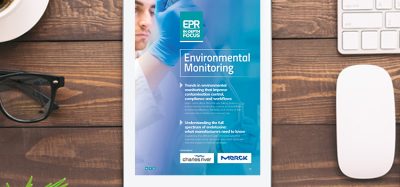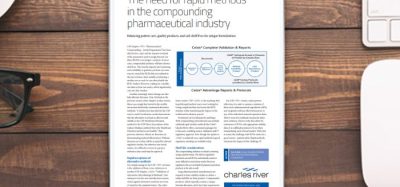Remestemcel-L reduces ARDS mortality in those under 65 years old
Posted: 4 May 2021 | Hannah Balfour (European Pharmaceutical Review) | No comments yet
New data shows patients with COVID-19-related Acute Respiratory Distress Syndrome (ARDS) were up to 75 percent less likely to die when treated with remestemcel-L and dexamethasone.


Mesoblast Limited has announced the 60-day results from the randomised controlled trial evaluating remestemcel-L in 222 ventilator-dependent COVID-19 patients with moderate/severe acute respiratory distress syndrome (ARDS). This trial was ended early after the third interim analysis.
The data shows remestemcel-L reduced mortality through day 60 by 46 percent in the pre-specified group (below age 65 years), but not in patients 65 years or older. Additionally, remestemcel-L reduced mortality by 75 percent and increased days alive off mechanical ventilation in patients under age 65 when combined with dexamethasone, in comparison with controls on dexamethasone.
“Reduction in mortality in mechanically ventilated patients under 65 years old remains a critical unmet need since as many as 72 percent of currently hospitalised patients across the US with COVID-19 are in this age category,” commented Mesoblast Chief Executive, Silviu Itescu. “This is similar to other causes of viral ARDS such as influenza where 70-80 percent of patients in intensive care units are under 65. The reduction in mortality seen with remestemcel-L in this age group highlights the potential to make a meaningful difference in the treatment of diseases of excessive inflammation.”
The trial enrolled 222 mechanically ventilated COVID-19 patients with moderate/severe ARDS, of whom 217 were randomised 1:1 to receive either standard of care (SOC) alone or SOC plus two intravenous infusions of remestemcel-L three to five days apart at a dose of two million cells/kg.
According to the company, the way in which the pandemic evolved during the course of the trial, particularly with regards to the patient pool becoming progressively older with comorbidities and refractory to treatment, may have impacted the outcome of the third interim analysis which resulted in the trial’s early conclusion.
It added that to achieve mortality reduction in patients over 65 with comorbidities would likely require a different dosing regimen than that which may be effective in patients under 65.
Key findings in the trial
- Remestemcel-L reduced mortality by 46 percent through day 60 in the pre-specified population of 123 treated patients under age 65 years of age: 26 percent reduction in mortality for SOC where SOC plus remestemcel-L was 42 percent. The effect on mortality was found to be similar whether the patients had moderate or severe ARDS.
- Standard of care changed during the trial to incorporate dexamethasone, with only two percent of the first 50 patients enrolled receiving dexamethasone compared with 84 percent of the subsequent 172 patients; this allowed for additional exploratory analyses of remestemcel-L treatment effects in patients who received dexamethasone as part of SOC:
- Remestemcel-L reduced mortality through day 60 by 75 percent compared to controls in patients under 65 who received dexamethasone as part of their SOC (14 versus 45 percent respectively for SOC and SOC plus remestemcel-L)
- Remestemcel-L increased days alive off ventilator within 60 days and reduced time to discharge from initial hospitalisation compared to controls in patients under 65 who received dexamethasone as part of their SOC
“The mortality benefit observed with remestemcel-L in ventilator-dependent patients younger than 65, particularly in combination with dexamethasone, has the potential to change the treatment regimen in this critical patient population,” said Dr Fred Grossman, Chief Medical Officer of Mesoblast. “As cases continue to surge in younger patients across the US, we plan to meet with the [US Food and Drug Administration] FDA to discuss next steps in the regulatory process.”
The company added that additional secondary endpoints, which include days in intensive care and cardiac, neurological and pulmonary organ damage, together with measures of circulating cytokines and inflammatory markers, are being evaluated and will be reported when completed.
Related topics
Biologics, Clinical Trials, Drug Development, Drug Safety, Research & Development (R&D), Therapeutics, Viruses
Related organisations
Related drugs
Related people
Related diseases & conditions
Acute Respiratory Distress Syndrome (ARDS), Coronavirus, Covid-19









